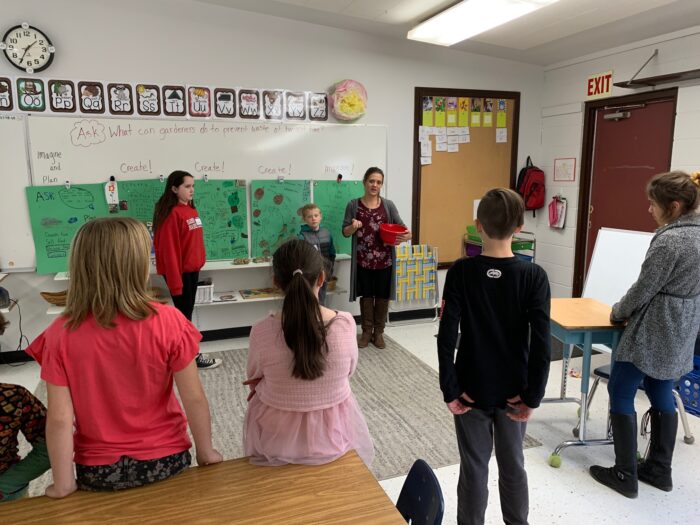If teachers feel fulfilled in their work and have the tools they need to do their job, they can be better teachers, and the students will engage in their learning.
Think about that for a moment. It holds for any of us, and for the work we do, be it a parent or a professional. If we don’t have the support we need to do our job well, those who rely on us suffer. This is why, in case of emergency, flight attendants instruct you to put your mask on first before you can help others.
Professional development for our teachers has been a significant strategic initiative this past year. The state provides some funding for professional development but, “it isn’t enough for strategic initiatives,” said Andra Murray, Director of Teaching and Learning at LPOSD. “We can’t thank your funders enough for bringing Professional Learning Communities (PLCs) to our schools.”
We are so blown away by what we are learning from the school leadership and teachers about the impact of PLCs, and we’d like to share with you a series of stories over the coming weeks.
- Understanding of PLCs and how it works (that’s today)
- Collective Commitments: How Collaboration Elevates the Staff Voice
- Gamification of Education: Using Measurable Outcomes to Reach Every Student
Although the program started three years ago, this year has seen the most significant impact. Initially, the 2020 plan was to bring in a keynote speaker and have a live event. Through PAFE funding, the district shifted gears over the summer to an August virtual institute and brought in content via video. Multiple school teams participated. Breakout sessions were recorded so everyone could distance across two to three rooms. And then school teams got some space outside to plan, collaborate, and think about what it would mean to their buildings.
The framework is simple. There are four questions to ask and answer continually:
- What do we want students to learn? (Curriculum)
- How will we know if they have learned? (Formative assessments, which we’ll address later)
- What will we do if they don’t learn?
- What will we do if they already know it?
What happens when we relentlessly question the status quo? Erik Olson, principal at Farmin Stidwell, is a huge advocate and champion for PLCs. He explains that teachers learn new methods of teaching and learning. They test those methods, then they reflect and discuss within their teaching teams.
“It’s changing the conversation in our school,” Erik said. “I’ll pass teachers at the coffee machine, and instead of talking about the weather, they’re talking about teaching challenges they have in the classroom and helping each other troubleshoot.”
Through PLCs and the four questions (above), we focus on how individual students are learning,” said Casey Mclaughlin, Sandpoint Middle School principal. “If they’re struggling, we need to address it.”
“When we sat down with a group of about ten teachers to look at the data collected through the formative assessments, we said okay, we’ve got a large number of zeros at the end of the quarter. Some students are not doing their work. What that means is, they don’t have the concept down, so we have some work to do. We use this data to help students who are struggling with extra teaching time. Meanwhile, we can have the students getting twos and threes – that are getting the material – keep working. And for those students who are really at the high level, we can extend their learning and provide them something that is further than what they’re doing.”
Everyone wins
Teachers get more satisfaction. They know they can work smarter together and have more connection in doing so.
Students get the support they need. Students benefit because, in using data more frequently, they can identify which students need extra help, which ones are doing fine, and which ones need to be pushed more. It addresses self-confidence issues and boredom in the classroom, which improves the energy in the class.
More than 30 teachers attended, and it will be repeated in future years. The virtual institute’s beauty is that it costs less overall, takes less time, and more people can attend.
Success comes in getting the right people on the bus (if you’ll pardon the pun). Cultural change comes with people who are willing to question the status quo and be self-reflective. When you have people who have been veterans for 35 years, that’s great. But they get into a mode of this is how it’s been done all along, so it can be hard to change direction with entrenched ideas. People have to be willing to challenge what’s been done and be open to making those changes.
This is just a start. Your gift to PAFE will help us help the school district to maintain and improve the momentum. Make your gift here.
Stay tuned for more stories from our school principals and teaching teams on how PLCs have sparked a passion in the teachers and the students.Follow us on your favorite channel
